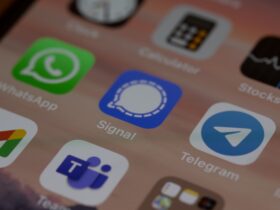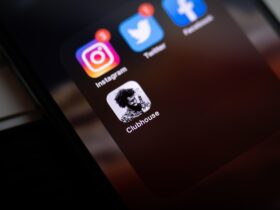
We are all familiar with the zing sound - the tiny beep that notifies us when we receive a message or call from bae, family, or friends on a messaging platform. What happens when new Terms of Service are imposed on users with an ultimatum to either accept or lose their account? Read about the new Whatsapp alternative that has got everyone talking - The Signal App!
We are all familiar with the zing sound – the tiny beep that notifies us when we receive a message or call from bae, family, or friends on a messaging platform. What happens when new Terms of Service are imposed on users with an ultimatum to either accept or lose their account?
It was no surprise to see the outrage and backlash that followed the take-it-or-leave-it update to its Privacy Policy released by WhatsApp, an app used by both the young and the old. As a result, millions of users went on a “japa” mode, frantically seeking out other messaging app alternatives they felt would be safer, and offer more privacy.
What’s the deal with Whatsapp?
Despite Will Cathcart’s, WhatsApp executive, frenzied attempts to defend the new policy on data sharing with its parent company Facebook, users were disconcerted by the threat of deleting user accounts if the policy was not accepted. This is primarily due to Facebook’s privacy-invasion policy.
In a nutshell, WhatsApp is on a journey towards monetizing its users through data sharing and targeted advertising. While the messages sent would remain private, any engagement with the platform can be shared with business and e-commerce services for commercial purposes. Essentially, this means that your messaging on WhatsApp would stay secure. Your data, on the other hand, remains fair game to anyone or business as long as it brings in the bucks to Facebook.
In recent developments, WhatsApp has now backed down in the face of the public onslaught and offered what it considers a clarification on the policy. Too little, too late? We can only watch and see. After all, it has only pushed back the date of enforcement until May 5th, a few months from now.
This postponement has done little to stem the tide of users seeking more privacy-conscious alternatives.
Signal App to the rescue?

Enter Signal App; a platform that has received a huge surge in downloads by users recently, beating Messenger and Facebook in social networking charts. Notable personalities like Elon Musk, Edward Snowden, Jack Dorsey, Laura Poitras, among others have endorsed the platform developed by the Signal Foundation. Interestingly, Brian Acton (WhatsApp’s co-founder) and Moxie Marlinspike (current CEO of Signal Messenger) are the founders.
Signal App is a significantly more secure alternative to WhatsApp, offering much of the same usability and functionality, but without the glaring holes in data privacy. Since its initial release in 2014, it has been the go-to for the privacy-aware, and professionals dealing with classified information because not even the app or company can read your messages. One thing to note is that it is only secure when both the sender and the receiver are on the app.
The privacy you need

Want to know the icing on the cake? The Signal App with the tagline “Say hello to privacy”, is ad-free and safer, using the open-source Signal Protocol to implement end-to-end encryption that covers all forms of communication. This means that it keeps your messages private and only accessible to your intended reader. The beauty about it being open-source is that developers can test and confirm (or dispute) its claims.
If you need your data protected, perhaps, you may want to hop on-board the Signal App train. All files on the app are encrypted with a four-digit passphrase, rendering them intelligible to snoopers. Signal goes a step further to add a layer on anonymity, with a Sealed Sender feature that hides the identity of a message’s sender.
Just like WhatsApp, you can download the Signal App free on your iPhone, Android, Mac, and PC devices for secure messaging and encrypted voice and video calls. Groups can be created on Signal and users can add up to 150 members.
However, here’s a juicy bit: you cannot be automatically added to a group without your permission. This is a welcome deviation from what is applicable on WhatsApp. Instead, you will be sent an invite which you must accept before you can join.
An exciting extra feature is the “Note to Self” which allows users to send messages to themselves rather than forming single-person groups. Unlike WhatsApp that collects a huge chunk of information like device ID, email address, contacts among others, Signal only requires phone numbers to register.
Once you lose customers’ confidence, it takes a whole lot of effort to gain it back. WhatsApp needs to make a crucial decision in the coming months on what their priority is: commercializing or ensuring privacy. Because one thing is for sure; Signal App is solely focused on privacy and incorporates a host of tools to consistently guarantee that.
So! What is your opinion on this new app getting all the spotlight? Would be downloading the signal app? Let us know in the comments.
Disclaimer: This article may be taken as an independent suggestion based on popular usage, and is not an endorsement – paid or unpaid.




























Welcome To KingsVineLuxury
KingsVine Luxury Limited is a homegrown, Nigerian online platform created with the city dweller in mind—expediently connecting them with premium quality products and services. !